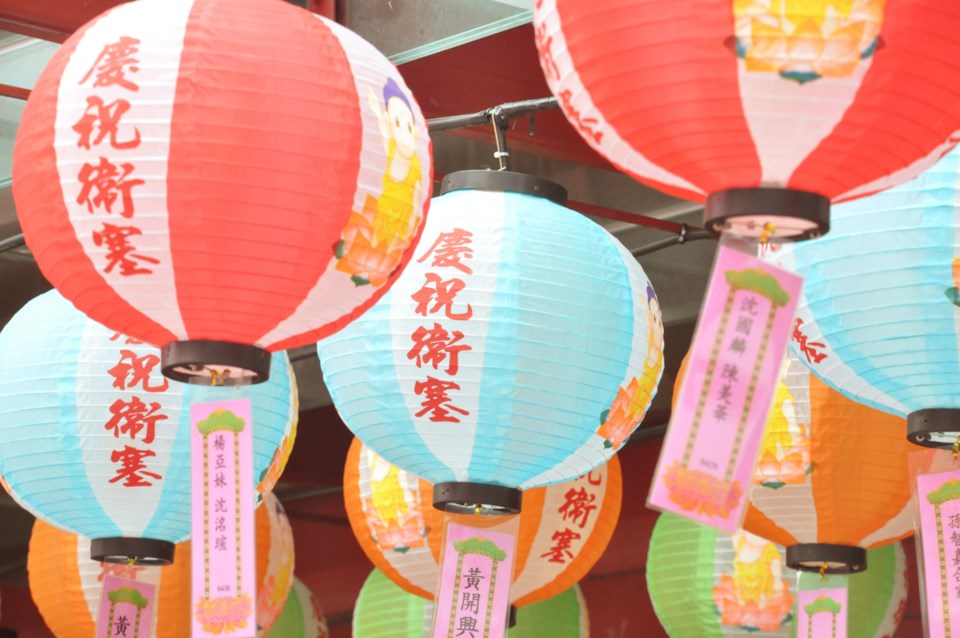Chinese New Year is coming up and if this is your first time celebrating, here’s what you need to know.
When is Chinese New Year?
This year, Chinese New Year’s Eve is Feb.15, and the Year of the Dog begins Feb.16
The New Year’s Day falls on a different date each year, normally between Jan.21 and Feb. 20, as it is based on the Chinese lunar calendar.
The celebrations go on for 15 days, ending on the 15th of the lunar calendar in January, which is the Lantern Festival.
Why is called the Year of the Dog?
Ancient Chinese people use zodiac animals to date the years. That’s why each lunar year is named after the Chinese animal zodiac.
Twelve animals were used to repeat a cycle of 12 years. In order, the animals are rat, ox, tiger, rabbit, dragon, snake, horse, goat, monkey, rooster, dog and pig.
The animal that represents each year also tells a lot about personality characteristics. People who were born in the Year of the Dog are often described as independent, serious, loyal and responsible, while their weaknesses might be that they are sensitive, stubborn and emotional.
For people with the birth year dog, their lucky numbers are three, four and nine and their lucky colours are green, red and purple.
Based on the year you were born, which zodiac animal do you belong to?
Rat: 2008, 1996, 1984, 1972, 1960
Ox: 2009, 1997, 1985, 1973, 1961
Tiger: 2010, 1998, 1986, 1974, 1962
Rabbit: 2011, 1999, 1987, 1975, 1963
Dragon: 2012, 2000, 1988, 1976, 1964
Snake: 2013, 2001, 1989, 1977, 1965
Horse: 2014, 2002, 1990, 1978, 1966
Goat: 2015, 2003, 1991, 1979, 1967
Monkey: 2016, 2004, 1992, 1980, 1968
Rooster: 2017, 2005, 1993, 1981, 1969
Dog: 2006, 1994, 1982, 1970, 1958
Pig: 2007, 1995, 1983, 1971, 1959
What are the New Year’s traditions?
Family reunion dinner
Just like celebrating Christmas, it is a tradition for families to have New Year’s Eve dinner together. This is a reunion dinner, especially for family members who study or work far away from home. In northern China, the common dishes are steamed fish, dumplings, roasted duck or chicken, while in the south sometimes people celebrate with hot pot, which contains a variety of vegetables, mushrooms, meatballs and meat.
Red Envelopes
It is a tradition for senior family members to give junior members red envelope, which is a form of cash gifts. The amount can range from a few dollars to quite a lot. Usually, young kids, students and unmarried adults will receive red envelopes from the family. At the workplace, it is also common for bosses to give their employees a red envelope.
House decoration
People give their home a full cleaning before the holiday, and decorate with things represent good fortune around the house.
The most common thing you can see is “Fu” poster on the front door. “Fu” is a Chinese character, which means good luck.
One custom is to place the “Fu” poster upside down, and the meaning behind it is that it will bring all the good luck to the family living in the house. To be more specific, “upside down” means “Dao” in Chinese, which means “coming”, and “Fu Dao” means the good fortune is coming to the household.
Temple visit
The New Year time is one of the busiest seasons for Buddhist temples. People start visiting temples on New Year’s Eve, around midnight. It is believed lighting incense and praying at the temple earlier in the New Year will welcome good spirits and deities coming to the household sooner.
The New Year experience at the temple is different compared to other celebration routines. It is more quiet and refreshing. What you can expect in Buddhist temples are lighting incense, trying special temple-made Chinese food, enjoying beautiful lanterns and hearing some chanting.
Popular temples in Richmond are International Buddhist Temple, Ling Yen Mountain Temple and Fo Guang Shan Temple.



